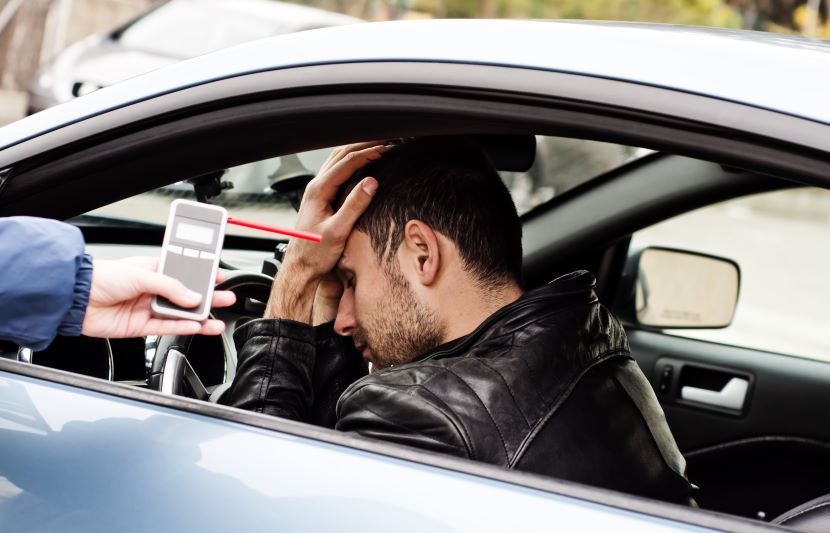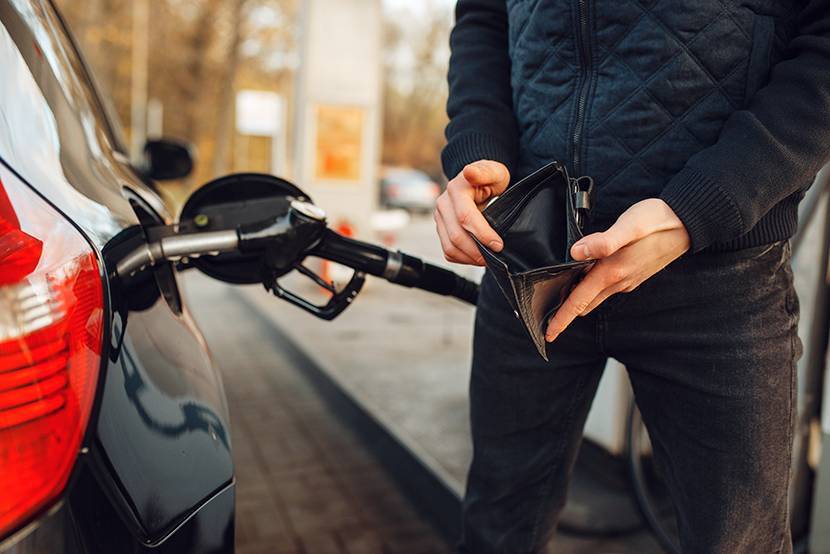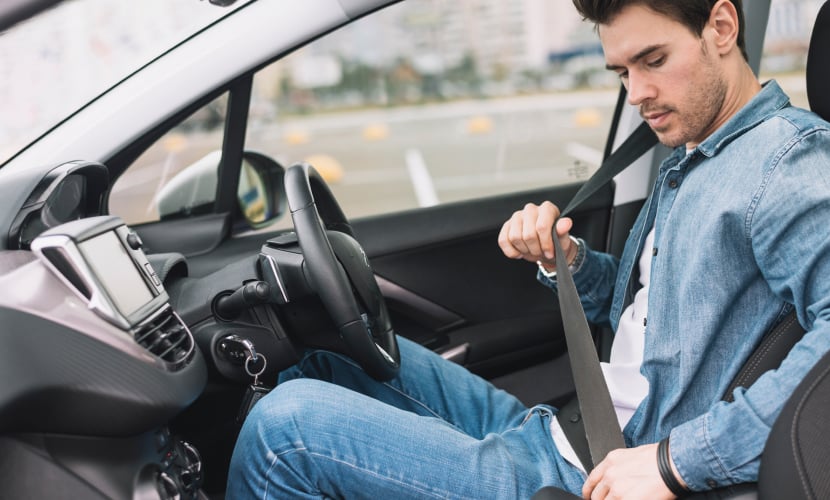A criminal record could jeopardise your chances of working, studying or going on holiday abroad.
The implications vary between countries. But there are lots of popular locations that might not let you get a visa if you have a criminal record. Here’s everything you need to know.

Can you travel abroad with a criminal record?
It’s possible to travel abroad with a criminal record. But you might find there are some countries you’re not allowed to visit.
Typically, if you require a visa to enter the country, you need to disclose if you have a criminal record or conviction. Visa applications are exempt from the Rehabilitation of Offenders Act 1974 so you need to state any spent and unspent convictions.
But, if you're on licence, you need permission to travel outside the UK. This is rarely provided and is often only given in exceptional circumstances.
Can you go to America with a criminal record?
If you don’t declare your convictions, you might be barred from travelling to the United States.
The Rehabilitation of Offenders Act 1974 doesn’t apply to US visa law. Even spent convictions might have an impact on whether you’re allowed to enter the United States.
UK travellers looking to travel to the US can usually apply for an Electronic System for Travel Authorisation (ESTA) rather than a visa. But if you’ve got a conviction or caution on your criminal record, it could prevent you from using the visa waiver scheme.
When applying for a visa, a consular officer should determine your qualifications.
Applicants are required to get an Association of Chief Police Officers Police Certificate issued within 6 months of the date of the visa interview.
Information on getting the police certificate is available from the Association of Chief Police Officers Criminal Records Office website. But, due to Royal Mail issues, they're unable to send any certificates using Royal Mail International Tracked shipping. They say customers should expect significant disruption and allow more time to process their applications.
You’re also required to complete the personal data form VCU1 and provide as much detail as possible concerning your:
- Can you go to Australia with a criminal record?
-
A valid passport
-
An email address
-
A credit or debit card to pay for the application fee
-
Andorra
-
Argentina
-
Brazil
-
Cambodia
-
Chile
-
Dubai
-
Hong Kong
-
Indonesia
-
Malaysia
-
The Philippines
-
Serbia
-
Singapore
-
Taiwan
-
Thailand
-
Vietnam
-
Argentina
-
Australia
-
Canada
-
China
-
India
-
Iran
-
Israel
-
Japan
-
Kenya
-
Macau
-
New Zealand
-
South Africa
-
Taiwan
-
The United Kingdom
-
United States
-
Your travel plans are cancelled or delayed
-
You or someone you're travelling with falls ill and can’t travel
-
Your airline goes bust
-
Your items are lost or stolen while on holiday
-
You need to pay medical expenses while abroad or in the UK
You might be able to travel to Australia with a criminal record if you can apply for a full tourist visa.
UK citizens need to get an electronic visitor visa to travel to Australia, either as a tourist or on business. But if you have a criminal conviction that resulted in a prison sentence, you might need to apply for a full tourist visa.
While these are usually granted automatically, there could be delays if you have a criminal record.
In certain cases, your application might be referred to the Australian High Commission – the Australian Embassy in London. If you’ve got a criminal record, you might also have to apply for a police certificate. This could take up to 49 days.
All Australian visa applicants have to satisfy the ‘character test’, which is set out in Section 501 of the Migration Act 1958. You might not pass the character test if you’ve got a substantial criminal record.
It's unlikely that a conviction for something like a drink-driving offence would prevent you from getting a visa to enter Australia. But it might delay your application.
Can you go to Dubai with a criminal record?
You can enter Dubai and the United Arab Emirates (UAE) with a criminal record. But, the crime must not have been committed in Dubai and you need to have served the entirety of the sentence.
If you have a British passport, you may be able to get a tourist visa when you enter the UAE. But, as the UAE embassies don't issue visas, you need to apply at a UAE-based airline.
If you travel to Dubai with a criminal record and stay for more than 30 days, your criminal record might be checked after this time.
If you plan to stay in Dubai long-term, know you may not be able to get a job with a criminal record. You need to have a background security check and get a certificate of good conduct.
Can you go to Europe with a criminal record?
UK travellers typically don't need a visa to enter the EU short-term. Travellers who don’t need visas usually aren’t asked about criminal records and criminal conviction checks aren’t typically carried out at borders.
But, from November 2023, UK travellers visiting participating EU countries have to get a European Travel Information and Authorization System (ETIAS) waiver.
If you’ve got a criminal record, you should be able to apply for an ETIAS and potentially discuss the circumstances around your conviction. If you’re denied an ETIAS, you might be able to appeal to the country that made the decision.
To apply for an ETIAS, you need:
What countries can I travel to with a criminal record?
While you might be able to travel to some countries with the appropriate visa, there are several that don’t ask about criminal convictions at all.
Unlock says that, based on feedback, the following countries either don’t require a visa or don’t ask about criminal convictions on their entry forms:
But it's important to note that this information is based on leisure and tourism travel. Policies may be different for longer stays or business trips.
Countries you cannot visit with a criminal record
These are the countries you can't travel to if you're convicted of a serious crime, according to VisaGuide.World:
Any other country that requires a visa for entry might ask you whether you’ve got a criminal conviction.
For instance, Canada sets out all kinds of criteria to demonstrate an offender has been rehabilitated before they may enter the country.
Russia asks about criminal convictions and you could end up being denied a visa. Unlock says there’s little information on what types of offence would lead to an application being refused. But most visas are approved and people are typically only declined in exceptional cases.
India is another country that asks about criminal records on its e-visitor applications. If you answer yes, you might be asked to provide further details about your conviction and a police certificate with more information. The visa officer should then decide whether to give you a visa.
Always check before you travel
If you’re travelling abroad and worried that your criminal record could result in you being refused entry, check the country’s policy first.
If you need to get a visa or use a visa waiver scheme, make sure you’ve checked to see what you could be asked. Leave yourself plenty of time, as you might need to provide extra information and police reports.
Declare any criminal convictions you may have in your application before travelling, regardless of how minor you think they are.
What happens if I’m refused entry to a country?
You might not be allowed to board a plane if you don’t have the right documentation, including the necessary visas or evidence of Covid vaccination. Sometimes your airline can arrange fast electronic travel authorisation, but this isn’t guaranteed.
You’re unlikely to be denied entry to a country once you’ve arrived at the airport. This is because you should have all your necessary documentation checked before you get on the plane.
In these rare instances, you’re likely to be sent home on the next flight - potentially at your own expense. But exactly what happens depends on the nature of the situation and the airline you're with.
Can I claim on my travel insurance if I’m refused entry to a country?
No. If you’re refused entry to a country, it’s often due to not having the necessary visas to enter.
In this case, travel insurance can’t help because you should make the necessary applications and organise the appropriate documentation beforehand.
Travel insurance covers unforeseen losses. Most insurers believe it's the traveller's responsibility to ensure they have the appropriate documentation and comply with the entry rules of the country.
If you're refused entry, it's likely due to your own error or lack of research - something many travel insurance policies don't cover.
Travel insurance is designed to provide peace of mind while you’re on holiday, both abroad and in the UK. Most policies cover you if:
You may also be covered for any pre-existing medical conditions, though this depends on your insurer and specific policy.
Compare travel insurance







